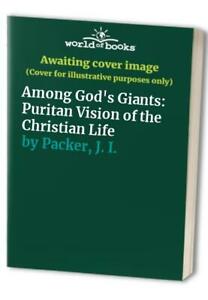“The great Puritans, though already deceased, continue to speak to us through their writings, telling us things that we must listen to urgently today. ” J. I. Packer
Puritain, as his name, was, in fact, mud from the beginning. Invented in the early 1560s, it was always a satirical and offensive word, implying moodiness, censorship, presumption and, to some extent, hypocrisy, beyond its fundamental participation of discontent, motivated by religion, in relation to what was seen as the Laodic church and committed in England by Elizabeth (also known as Elizabeth). Later, the word won the additional political connotation of those who were against the monarchies already favored by a kind of republicanism; his first reference, however, remained what was considered a strange, angry and ugly form of Protestant religion.
- In England.
- The feeling of antipuritans soared at the time of the Restoration and has since flowed freely; in North America.
- It was built slowly after Jonathan Edwards’ time to peak a hundred years ago in post-puritan New England.
However, over the past half century, some researchers have thoroughly removed this mud and, just as Michelangelo’s frescoes in the Sistine Chapel are unknown colors after the restorers removed the dark varnish, the conventional image of the Puritans recovered radically, at least during (In fact, knowledge now travels slowly in some regions). Taught by Perry Miller, William Haller, Marshall Knappen, Percy Scholes, Edmund Morgan and several more recent scholars, well-informed people now recognize that typical Puritans were not fierce, monstrous or socialreligious fanatics, but sober and conscientious people, in addition to educated citizens, people of principle, determined and disciplined, exceptional in domestic virtues and devoid of major defects, except for the tendency to use many words to say something important to God or man In any case , the error is being fixed.
But still, the suggestion that we need the Puritans?Westerners of the late twentieth century, with all our sophistication and mastery of technique in secular and sacred domains?You can raise your eyebrows. It remains the belief that puritans, even if they were actually responsible citizens, were comical and pathetic, naive and superstitious, super scrupulous, masters in the small details and unable or did not want to relax. One wonders: what could these fans give us?what do we need?
The answer is, in a word, maturity. Maturity is a composition of wisdom, goodwill, malleability and creativity. The Puritans illustrated maturity; We don’t. A leader who has traveled a lot, a Native American, said that American Protestantism, man-centered, manipulative, motivated by success, indulgent and sentimental as it is, obviously, is five thousand kilometers wide and one centimeter deep. We’re spiritual dwarves. Puritans, on the other hand, as bodies, were giants, great souls at the service of a great God, in which they combine a sober passion and tender compassion, visionary and practical, idealistic and also realistic, guided by goals and methodical, were great believers, great hopes, great doers and great sufferings.
But their sufferings, on both sides of the ocean (in old England, by the authorities, and in New England, because of the weather), tempered and matured them until they gained a no less heroic stature. us today, do not lead to maturity; Deprivation and struggle, yes, and the battles of the Puritans against the evangelical and climatic deserts, where God placed them, produced a virility of character, inviolable and unwavering, overcoming discouragement and fears, so the true precedents and models of men like Moses and Nehemiah, and Peter after Pentecost, and the Apostle Paul.
Spiritual warfare made the Puritans what they were: did they accept antagonism as their vocation, considering themselves to be the pilgrim soldiers of their Lord, as in Bunyan’s allegory, without expecting to move forward from an uno unobcumbed step of one or the other John Geree, in your pamphlet?The character of a puritanical or nonconformist old Englishman?(1646), he declares: “His whole life had it as a war in which Christ was his captain; their weapons were prayers and tears. The cross, its banner; and his word [currency], Vincit who pats [who suffers the conquest]?.
This young classic of Christian literature, reprinted by Faithful Editor, is the result of decades of study by Dr. JI Packer, an Anglican scholar who presents us, in a vivid and inspiring way, a profound, historical, beautiful and exemplary of the spiritual life and teaching of great men of the past, to those he calls “giants of God”, such as John Owen , Richard Baxter, Jonathan Edwards, among others. Here we see how these men addressed issues of great importance to faith and theology, such as their vision of the Bible, worship, family, church, outreach, and spirituality. Their conclusion is that puritans were mature men and women in the faith, unlike the super-sociality of today’s Western Christianity. In this work, we are invited to learn from his example and emulate his faith.

